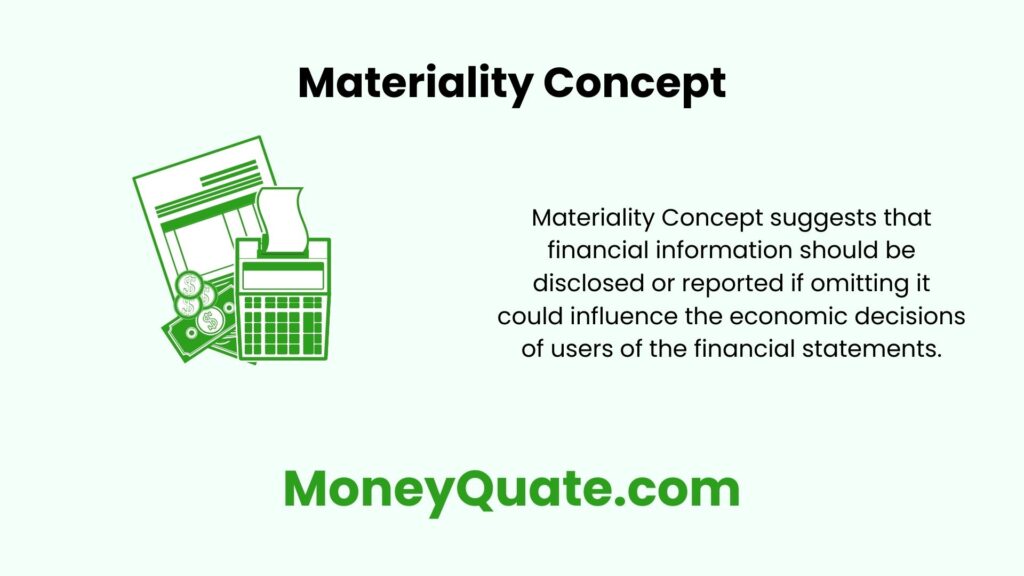Ever lose a few bucks between the couch cushions? Annoying, sure, but it won’t break the bank. Now, imagine forgetting a whole rent payment – that’s a different story! That’s the idea behind the materiality concept in accounting – it’s about separating the big bucks from the small change.
As accountants, we juggle tons of financial information.
The materiality concept helps us sort through it all and highlights the most important stuff for the company’s financial statements.
Think of it like a financial spotlight – it shines brightly on the info that truly matters.

Contents
Why Focus on the Big Picture?
Financial statements are like a company’s financial report card.
Investors, lenders, and others use this report card to make big decisions about the company.
The materiality concept makes sure these statements focus on the information that could seriously impact those decisions.
Here’s a breakdown:
- Material: This means something that’s big enough to make a difference in someone’s decision-making.
- Immaterial: This means something that’s too small or unimportant to make a real impact.
Real-World Examples Relating The Materiality Concept
Let’s see how the materiality concept plays out in everyday accounting:
- Office Supplies: Say a company spends $10,000 a month on office supplies. If there’s a $100 mistake in the math, it’s probably immaterial. It’s a tiny bump in a big road.
- Lawsuit Alert: Now, imagine the same company faces a potential lawsuit for $1 million. Whoa, that’s a big deal! Even if they think they’ll win, the potential financial impact is huge and needs to be mentioned in the financial statements.
Benefits of Focusing on What Matters
By using the materiality concept, we get some great advantages:
- Clearer Picture: Financial statements become easier to understand because they focus on the most important financial information. No more information overload!
- Save Time and Money: Accountants don’t have to sweat over tiny details. This frees them up to tackle more important tasks.
- Better Decisions: People who use financial statements can make smarter decisions based on the most relevant information.
The Materiality Threshold
There’s no one-size-fits-all answer for materiality.
It depends on the specific company and its financial situation.
A small mistake for a giant corporation might be a big deal for a smaller business.
It’s a judgment call made by experienced accountants, like detectives figuring out what clues truly matter.
The Takeaway
The materiality concept isn’t about ignoring details; it’s about prioritizing.
By focusing on the most important financial information, we ensure financial statements provide a clear and accurate picture of a company’s health.
It’s like cleaning out your wallet – you keep the important stuff (big bills) and ditch the small change (until later, maybe).